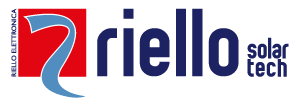It is an inexhaustible resource that easily combines with cutting-edge technologies, versatile, silent and efficient. It is the most powerful, the most studied and is one of the undisputed protagonists of the energy transition.
Not convinced yet? Here are some advantages of solar energy that distinguish it from other renewables such as wind, geothermal or hydroelectric.
- It is a clean energy source that does not produce CO2 emissions. Protecting our planet from climate change is very important: collecting and exploiting the sun’s rays allows us to reduce the consumption of fossil fuels, eliminating the related greenhouse gas emissions.
- It’s always available. It is available all year round and throughout the day. Even when there are clouds but there is enough light to create shade.
- It can be a source of investment. Installing a photovoltaic system that uses solar energy involves an initial cost which is then recovered over time thanks to lower bills.
- It is self-produced. This type of energy can be obtained without being dependent on large companies, unlike normal fuels. In fact, it is possible to produce it privately, for example on the roof of your own home.
- Lower price. Solar energy systems are more cost-effective.
- It is certified. The technology that is used for the purpose of obtaining energy from the sun is safe and requires little maintenance.
- It is a renewable and inexhaustible source by definition. On the time scales of our interest, the sun represents an immutable and, in fact, inexhaustible source of energy: day after day, year after year, it is and will always be there, the same as itself. It’s true, the yellow dwarf that gives its name to the Solar System will not have eternal life, in 4 or 5 billion years it will exit its main sequence and become unstable.
- The sun reaches everywhere. Every point on earth is illuminated by the sun, more or less intensely, and can be exploited anywhere on the planet, even where infrastructure and connections are lacking such as isolated, rural, remote or difficult to reach areas. Once the sun’s energy is converted into electrical energy, solar rays can be transported quite easily.
Photovoltaic produces energy mainly in the central hours of the day, but thanks to efficient, capacious and reliable storage systems, it is possible to better manage the discrepancies between energy demand and the natural supply of the sun.
This enables entities such as energy communities and allows citizens and companies to place excess self-produced energy on the market, guaranteeing themselves – in addition to savings – an income. To obtain all the advantages described so far, photovoltaic panels and photovoltaic inverters are needed. The latter are the beating heart of every solar energy system: whether you are the owner of private homes or entrepreneurs who aim to maximize the energy efficiency of their business or industrial warehouses.
But why does the inverter have such an important role?
Photovoltaic inverters are devices that convert the solar energy generated by the panels into alternating current, making it usable for our appliances and systems. Without it, self-produced energy would remain unused.
A high-quality inverter can significantly increase the efficiency of the photovoltaic system.
There are different types of inverters available on the market: from string inverters to hybrid inverters and centralized inverters. Each type has its advantages and peculiarities. Choosing the right inverter can make a big difference in the performance of your photovoltaic system.
You can request a consultation with one of our experts or more information on our inverters by clicking here. You will be contacted to receive all the information you need.
What is a photovoltaic inverter?
A photovoltaic inverter is a device that converts the direct current (DC) produced by solar panels into alternating current (AC), the form of energy that powers our everyday home and business lives.
Learn more here
How does the photovoltaic inverter influence the performance of the photovoltaic system?
It must be efficient, it must be able to intelligently manage the energy load connected to it, it must offer consumption and expense monitoring systems and it must be combinable with a storage system.
Learn more here
Which inverter to choose?
If you are thinking of installing a photovoltaic system on the roof of your home or your commercial or industrial business, choosing the inverter that best suits your needs is essential. If you want to know the main characteristics of a photovoltaic inverter to take into consideration when making a choice, go here and learn more about the topic.
If you want to understand what types of inverters exist, click here and learn more about the topic


